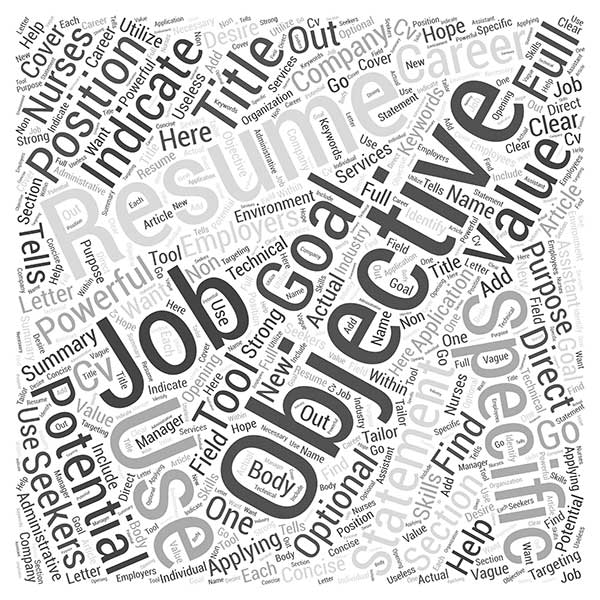
When the U.S. job market hovers at about a 10% national unemployment rate, you need every possible advantage available to even get an interview. In reality, no matter how wonderful you think you are, or how many years experience you have to offer, there is always someone out there, better than you, applying for the same jobs.
Having a flawless, well written and well-planned resume is your key to success. If you can’t impress an employer with your resume, you will never get the chance to impress him in person. Your resume is your marketing piece. It is not only the best method for introducing yourself to an employer, in many instances, it is the only one you’ll have.
Before sending your resume off and getting your hopes up, follow these few simple rules to drastically improve your chances of getting noticed!
-
1. Ideally, you could have a professional resume done for you. Working closely with a resume preparation service, especially in a bad economy, is worth every penny.
A superb resume (including perhaps even a cover letter as well) could range anywhere from $50 – $600+. However, before committing to anyone, check their credentials. Ask if they are certified by the National Resume Writers Association.
This is a professional association where the members are actually required to pass a stringent and very lengthy test before becoming “certified”. Very few companies out there can boast this level of credentialing. Many resume writers are either professional writers, HR managers, or worse – an inexperienced someone who knew how to start a website and offer services.
Resume writing is an art in and of itself. Keep in mind: you get what you pay for.
2. If paying to have it done is just simply out of the question, then make sure you proof the document. It’s amazing how many resumes are thrown out because of absolutely careless typos and mistakes. Double check all your contact information. Have someone else read through the resume to help you find any errors and possibly offer suggestions.
3. Believe it or not, your name is not the most important thing on your resume! You don’t need to make it bigger, you don’t need to “bold” it, you don’t need to do anything to it other than making sure it’s spelled correctly.
What is important on your resume is a combination of past job titles and companies. Depending on the job you are applying for, you may want to edit your resume to indicate in “bold” that you worked for a particular company (maybe their biggest competitor?) and/or held specific titles.
You should, therefore, highlight ABC Co. and/or Vice President, International Operations. In many cases, this is exactly the type of information the employer is targeting. Make this information your focal point, something that will immediately draw the employer’s eye to the information he is truly interested in finding.
4. Add a very detailed Objective Statement as the first topic on the resume. Why is this so important? Because if you can’t describe what you want to do, an employer doesn’t want to figure it out for you. This can be three or four fairly short, concise sentences that explain exactly what you are looking for, not what you can do.
This is your chance to describe to everyone who picks up your resume just what you want to do. Don’t waste anyone’s time with statements such as, “I want a job that allows me to utilize my skills.” That provides no information at all. Add something of value.
If you are tired of traveling, perhaps something like this will work for you: “Having just spent the past five years as a pharmaceutical sales rep covering the west coast, I am now looking for an inside sales position in the pharmaceutical or home health care field.”
5. Add a bulleted list of skills and accomplishments up front. This list will grab someone’s attention immediately simply because of the bullets. Maximize this opportunity to detail any unique skill you have such as software programs you know, certifications you hold, or languages you speak.
6. No fancy fonts and typefaces. Unless you’re in advertising or design, these work against you. Your words will impress the employer; not the colors, fancy scripting, or huge fonts.
7. Keep it to one page or as close as possible. No matter what you do, no one wants to spend the time to read more than is absolutely necessary. Cut out the fluff. Delete anything that doesn’t add real value.
Your resume is supposed to tempt people into meeting you and getting further details. Providing too much information can work against you immediately.
8. Do not add personal information, marital status, or hobbies – unless the hobbies are directly related to the job. For instance, if you are applying for jobs in the Park Services Dept., you might be OK adding that you love to hike. Otherwise, if you’re an accountant or a salesperson – it won’t help.
No one wants to know you live with your beautiful wife and three lovely children…they want to know how you can help their company.
9. Whether you wrote your own resume or a professional company did it for you, you should still have the option to edit as necessary. When you see a particular job you are very interested in and feel singularly qualified for, it’s always a good idea to go into your resume and highlight or add any specific information the company is looking for, relevant to your own experience.
In other words, if a job posting says they need someone with at least five years bookkeeping experience using QuickBooks, yet your resume simply says “experienced in accounting software” – don’t make them guess! Go back to your resume, and this, and bold it! Make it jump out at them!
10. If you are afraid of possible age discrimination, leave out any reference to the years you graduated from or attended high school and/or college.
Since most individuals go to college right after high school, a graduation date of 1975 gives the employer a pretty good idea of your age. Leave it off. This isn’t lying.
Remember – the entire purpose of your resume is get them interested enough to want to learn more. Don’t let someone judge you or make false assumptions about you simply because of your assumed age bracket.


